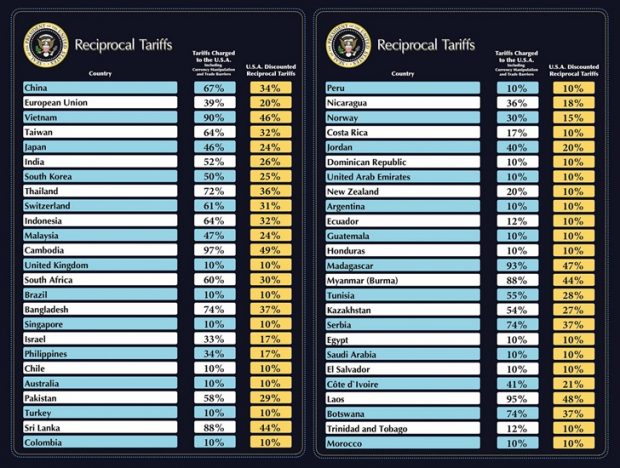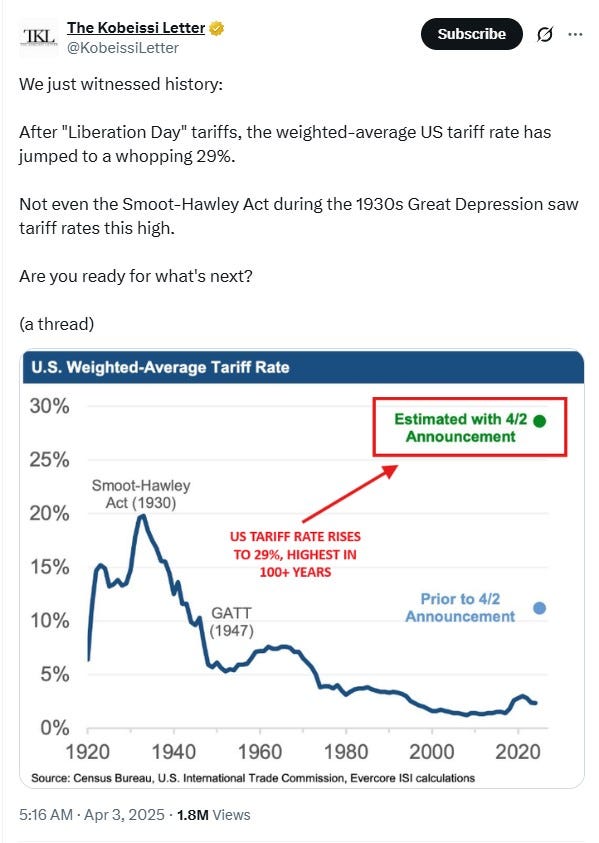In an amusing display of British pride and solipsism, the venerable Times of London once ran the headline “Fog in Channel – Continent Cut Off.”
Overly arrogant individuals sometimes find it difficult to recognize that they are not the center of the universe, and that instead they might actually be considerably less large and powerful than those they intend to overawe, cut off, or isolate.
This sort of notion was also famously expressed in a Bugs Bunny and Road Runner cartoon I remember seeing during my childhood. One of the Looney Tunes characters—I forget which one—was perched on the branch of a tree and idiotically decided to destroy his adversary by sawing it off. Since cartoons may easily defy physical laws, his ridiculous plan actually succeeded and that branch remained suspended in mid-air while the rest of the tree suddenly plummeted to the ground. But real life is considerably different than what was portrayed by Warner Brothers cartoonists.
Some may disagree. I’ve sometimes wondered whether the surprising trade policies that President Donald Trump announced over the last couple of weeks might have been inspired by those Bugs Bunny cartoons of the 1950s. Perhaps he assumed that they accurately portrayed real life events and decided to apply that same strategy to America’s international trade problems.
Certainly the sudden, unilateral application of new tariffs against every other country in the world—ranging from a stiff minimum of 10% against the entire human race to a China rate that ultimately reached an absurd 145%—seemed more like something out of a cartoon than normal economic policy planning.
The initial tariff rates shown in the chart that Trump held up at his April 2nd announcement produced a jaw-dropping reaction by nearly all economic observers. I suspect that many of them may have wondered if he’d somehow gotten his dates confused and the whole exercise had actually been intended as an April Fools’ joke.
I was recently interviewed by a right-wing British podcaster named Mark Collett, and he suggested that Trump’s erratic and mercurial political decisions reminded him of the Roman Emperor Caligula, leading me to concur with his historical analogy.
Caligula is probably best known for announcing that he would appoint his horse Incitatus to the consulship, the highest political office of the Roman government, and also for declaring himself to be a living god. But I think that if Trump had given his favorite dog or cat a Cabinet post and even Tweeted out a few fanciful claims regarding his own divinity, the negative impact upon America’s position in the world might have been considerably less damaging than what was caused by his outrageously bizarre tariff proposal.
Tariffs are just a type of tax levied on imports, and America annually imports well over $3 trillion dollars worth of foreign goods, so tariff taxes obviously have a huge economic impact. But Trump suddenly raised those taxes by more than a factor of ten, taking them from around 2.5% to 29%, rates far, far beyond those of the notorious 1930 Smoot-Hawley Tariff and reaching the levels of more than 100 years ago. This certainly amounted to one of the largest tax increases in all of human history.
According to our Constitution, tariffs and other tax changes must be enacted by Congressional legislation. But Trump ignored those requirements, instead claiming that he had the power to unilaterally set tariff tax rates under the emergency provisions of a 1977 law that no one had ever previously believed could be used for that purpose.
Across our 235 year national history, all our past changes in tariff, trade, or tax policy—including Smoot-Hawley, NAFTA, the WTO, and Trump 45’s own USMCA—had always been the result of months or years of political negotiations, and then ultimately approved or rejected by Congress. But now these multi-trillion-dollar decisions were being made at the personal whim of someone who had seemingly proclaimed himself a reigning, empowered American autocrat.
As might be expected, Trump’s huge tax increase on $3 trillion of imports quickly led to a very sharp drop in stock prices, but Trump declared that he was unbending and would never waver. China had prepared for exactly such an economic attack, and when it soon retaliated with similar tariffs on American products, Trump counter-retaliated, with several days of those tit-for-tat exchanges eventually raising tariff rates against China to an astonishing 145%, essentially banning almost all Chinese goods. Many other countries and the EU also threatened similar retaliatory tariffs, but since their tax rates were governed by law rather than autocratic whim, their responses were necessarily much slower.
However, just a week after he announced those gigantic tariffs against the entire world and repeatedly promised to maintain or even further raise them, Trump suddenly changed his mind. Although he kept the Chinese rates at those ridiculous levels, he declared that tariffs on all other countries would suddenly be reduced to a very high but rational 10% rate for the next 90 days while he decided what to do.
Thus, during the course of a single week, Trump had raised American tariffs by more than a factor of ten, then dropped them by a factor of two, representing exactly the sort of tax policy we might expect to see in a Bugs Bunny cartoon.
Trump’s totally unexpected reversal naturally produced a huge rebound in stock prices, which recovered much of the ground that they had previously lost, and Trump boasted about all the money that his friends had made from that unprecedented market rebound. This led to some dark suspicions that our unfortunate country had just witnessed one of the most outrageously blatant examples of insider trading in all of human history.
Across thousands of years, the world has seen many important countries ruled by absolute monarchs or all-powerful dictators, with some of these leaders even considered deranged. But I can’t recall any past example in which a major nation’s tax, tariff, or tribute policies have undergone such rapid and sudden changes, moving up and down by huge amounts apparently based upon personal whim. Certainly Caligula never did anything so peculiar, nor Louis XIV nor Genghis Khan nor anyone else who comes to mind. Lopping off the heads of a few random government officials was one thing, but drastic changes in national financial policies were generally taken much more seriously. I don’t think that Tamerlane ever suddenly raised the tribute he demanded from his terrified subjects by a factor of ten, then a few days later lowered it back down by a factor of two.
What will our tariff rates on $3 trillion of imports be like in a few months? I doubt that anyone can say, even including the current occupant of the Oval Office. For example, late Friday night the Trump Administration apparently exempted smartphones, computer equipment, and other electronics from his Chinese tariffs, hoping that the timing would help hide that further abject surrender from the American population.
Consider America’s major business corporations or even its small mom-and-pop operations. Nearly all of these have some substantial connection to international trade, even if they merely rely upon ordinary products that they buy at Costco or Walmart. On April 2nd, Trump announced his huge new tariffs that would greatly raise the price of those products or possibly lead to their disappearance, then on April 9th he changed his mind and suspended those tariffs for 90 days, but still proposed to afterward enact them, while essentially banning nearly all Chinese imported goods with a 145% tariff that may or may not continue.
Under those circumstances, how could any rational corporate planner—or even sensible small-businessman—formulate any long-term investment plans? For at least the next 90 days, virtually all business investment will surely remain frozen, except perhaps for a little panic-buying. It’s hardly surprising that consumer sentiment quickly reached the worst levels since record-keeping began.















